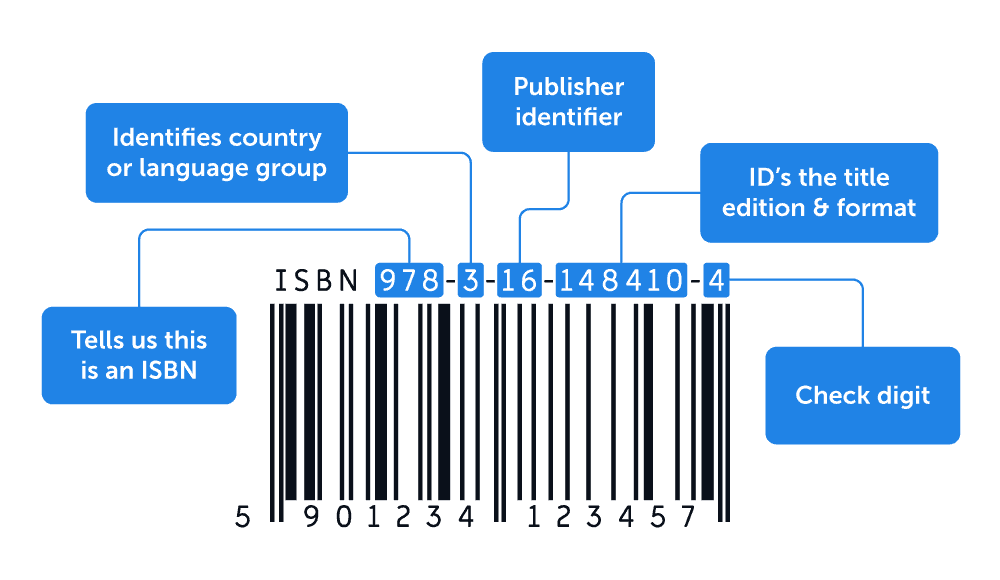An ISBN (International Standard Book Number) is a unique identifier for books, designed to streamline the process of cataloging and selling books across various platforms. It consists of 13 digits and provides essential information about the book, such as the title, edition, format, and publisher.
Usage of ISBN:
- Cataloging: Libraries and bookstores use ISBNs to catalog and organize books efficiently.
- Sales: Retailers, both online and offline, use ISBNs to manage inventory and sales.
- Identification: Each ISBN is unique to a specific book edition, ensuring precise identification.
- Metadata: Helps in distributing and marketing books by providing detailed information to databases like Books in Print.
An ISBN is crucial for authors and publishers to ensure their books are accessible and easily discoverable in the market.
The format of an ISBN is shown below:

2. Is an ISBN Necessary?
ISBNs are essential for selling books in stores, libraries, and most online retailers. However, some platforms, like Amazon, do not require ISBNs for eBooks.
3. Does a Book Title Have a Constant ISBN?
No, different formats (e.g., paperback, hardcover, eBook) need separate ISBNs. A new edition, change in publisher, title change, or translation also necessitates a new ISBN.
4. Can an ISBN Be Reused?
No, an ISBN cannot be reused, even if the book goes out of print.
5. In Whose Name is the ISBN Issued?
ISBNs are issued to the publisher. Self-publishing authors can apply for their own ISBN to be the publisher of record.
6. Should I Get My Own ISBN?
Yes, having your own ISBN gives you control over your book’s metadata, making it easier for readers to find your book. It also keeps you as the publisher of record, which is beneficial for branding and flexibility in publishing.
7. Advantages of Getting Your Own ISBN
- Full control over book metadata.
- Flexibility to change publishing services without changing ISBN.
- Direct inquiries and orders will come to you, not a third party.
- Consistent branding if you publish multiple books.
8. Disadvantages of Not Having an ISBN
Without an ISBN, your book won’t be available in physical bookstores, some online retailers might not stock it, and it won’t be listed in bibliographic databases like Books in Print.
9. Where Can I Get an ISBN?
ISBNs can be obtained from national agencies, and at ISBNforBooks.com. Costs vary, with bulk purchases being more economical. Some countries offer free ISBNs.
10. Do I Need a Barcode If I Have an ISBN?
Yes, a barcode is necessary for physical books to manage inventory. Barcodes can be generated from the ISBN using free online tools or obtained from the ISBN agency.
By understanding these FAQs, self-publishing authors can better navigate the complexities of ISBNs and make informed decisions for their publishing journey.
Have any other questions? We’re here to help.
